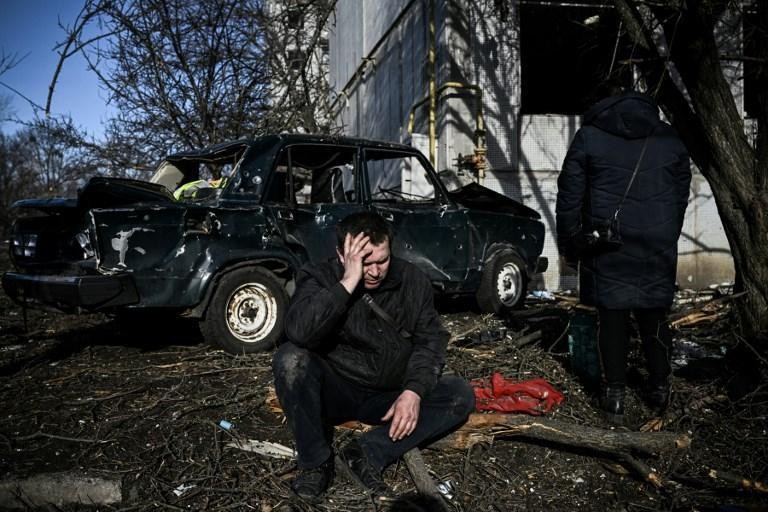The European Commission on Wednesday gave the green light to allocate €9 million to mental health assistance for Ukrainians who fled the war in their country.
One 20-year-old medical student from Ukraine, Olga, told the World Health Organisation (WHO) about a condition called refugee syndrome. "I think I’m feeling the effects. So far, I have not found a way to stay calm. I feel scared all the time. People like me need mental health support because we feel completely disoriented and lost," she said.
Since the Russian invasion of Ukraine on 24 February, thousands of others find themselves in a similar place, which is why the EU has agreed to mobilise funds from the EU4Health Programme, set up in response to the Covid-19 pandemic, to support healthcare professionals to assist Ukrainian refugees.
“Russia’s brutal aggression in Ukraine has laid bare the horrors and scars of war. It has forced millions of innocent people, many of them children and vulnerable, to flee the only homes, lives and livelihoods they have ever known for a path of uncertainty," Commissioner for Health and Food Safety, Stella Kyriakides, said.
Aside from the upset of having to leave their country, reports of sexual violence and human trafficking of refugees are further raising concerns that the trauma "risks destroying a generation," according to Sima Bahous, Executive Director of the UN gender equality and empowerment agency, UN Women.
Short- and long-term assistance needed
Kyriakides stressed that EU countries must offer essential mental and psychological support to all those who need it. "With this additional funding, we will ensure that this assistance is quickly provided on the ground with the help of our partner organisations."
Related News
- Belgian health care centres to offer psychosocial support to Ukrainian refugees
- WHO provides medical aid to Ukraine amid attacks against the health care system
One Commission press officer told The Brussels Times that the amendment does not allocate the funds per country, but instead, some €7 million is earmarked for the International Federation of Red Cross Societies, while the other €2 million is open for competition, mostly for NGOs, which can apply to receive the funding.
However, Laura Murray, PhD, of the Johns Hopkins University School of Public Health stressed that, as the conflict continues, Ukrainians' mental health needs are going to not only be vast, they will also be very different, and ever-changing.
"What we're seeing is that there's a lot of need for psychological first aid now that many people find themselves somewhere safer," she said in an interview. Following this initial phase of offering basic mental health support, "needs will be extreme in the coming months," as many people will be in need of more long-term treatment.

